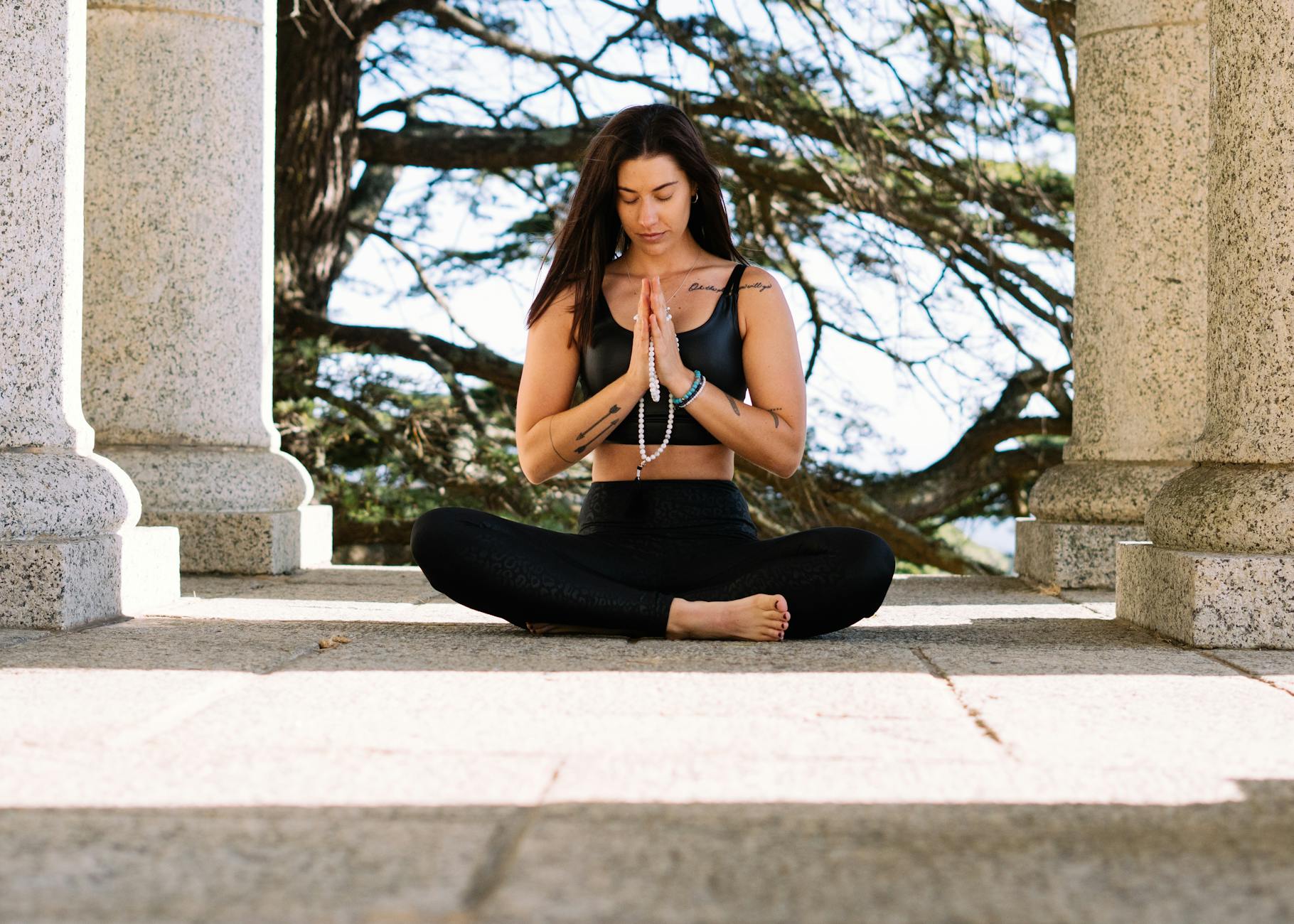Life often feels like a balancing act—juggling work deadlines, family responsibilities, and your own well-being. It’s easy to get caught up in the chaos, leaving little room for self-care or personal growth. But the truth is, even the simplest daily habits can spark meaningful change. In fact, small, intentional actions have the potential to improve your life significantly in just a few weeks. By focusing on consistency over perfection, you’ll uncover a path to feeling more grounded, accomplished, and resilient.
If you’re looking to start building these habits, gratitude journaling is one excellent practice that can boost your confidence and well-being effortlessly. Get ready to explore practical habits that fit seamlessly into your routine and create lasting impact.
Start Your Day with Intention
How you begin your morning often sets the tone for the rest of your day. It’s like paving a road—starting with intention helps you travel smoother, avoid unnecessary detours, and maintain focus. By embracing small yet meaningful habits, you can create a morning routine that uplifts and empowers you. Below are two approachable practices designed to make your mornings more deliberate—and your life more fulfilling.
Daily Intentions for a Positive Outlook
Imagine you’re planting a seed every morning. That seed is your daily intention—a simple yet powerful way to guide your focus throughout the day. Unlike a strict to-do list, an intention clarifies what you want to feel, accomplish, or embody. Whether it’s choosing patience during a stressful workday or dedicating yourself to one act of self-care, intentions allow you to align your actions with your goals.
To start, ask yourself reflective questions as part of your planning ritual. For example, “What do I want to experience today?” or “How can I best show up for myself and others?” Use resources like 100 Questions to Ask Yourself for Self-Growth to dive deeper into your goals and priorities.
A quick tip for making this effortless? Pair setting an intention with an activity you already do each morning, like sipping coffee or brushing your teeth. The repeating action reinforces the habit and keeps your mind tuned to what really matters.

Photo by KATRIN BOLOVTSOVA
For additional ideas, explore how journaling complements intention-setting in How to Journal for Self-Improvement.
The Power of Morning Affirmations
Middle-aged working women often face unique pressures—from managing careers to supporting family, and all while maintaining some semblance of personal time. Morning affirmations act as your invisible armor, shielding your mind from self-doubt and fostering a mindset of confidence and positivity.
What exactly are they? Affirmations are short, uplifting statements you say aloud to reframe your thoughts and beliefs. Over time, they can help dismantle negative self-talk and boost your resilience. The beauty lies in their simplicity.
Here are a few realistic affirmations you could try, particularly if you often feel overwhelmed or stuck:
- “I have the strength to handle whatever the day brings.”
- “It’s okay to ask for help; I don’t have to do everything on my own.”
- “I am enough, just as I am, in this moment.”
You don’t need to spend lengthy hours in self-reflection. Instead, speak or mentally repeat these affirmations while getting dressed. Feel the energy behind each word—it’s an empowering moment you’re gifting yourself. For more inspiration catered to women, check out Positive Affirmations for Women.
Scientific studies even back the benefits of affirmation practices. Resources like The Benefits of Positive Affirmations highlight how this habit improves mood, enhances self-esteem, and even reduces stress.
Start integrating affirmations today, and watch how this small change brings confidence into every corner of your life.
Boost Physical Energy with Simple Movements
Feeling physically drained after a long day of work or household duties? You’re in good company. Many women juggle multiple roles that often leave little energy for themselves. Small, simple movements can recharge your physical energy—and even your emotional well-being—without adding stress or complexity to your day. Here’s how to refresh both your body and mind with ease.
Stretching for Energy and Relief
Ever notice how sitting for hours leaves your body stiff and achy? Stretching is a powerful, yet underrated way to counteract the toll of sedentary habits. Stretching improves flexibility and boosts circulation, which can leave you feeling energized in just a few minutes.
Here are some stretches that work wonders, especially if you’re tied to desk work:
- Neck Rolls: Release tension by gently rolling your head in a circular motion, slowly moving through each side.
- Cat-Cow Stretch: A quick and effective way to loosen your spine. Start on all fours, arch your back toward the ceiling (Cat), then dip your belly low and lift your head upward (Cow).
- Forward Fold: Stand tall, hinge at your hips, and reach toward your toes while keeping a soft bend in your knees. Feel the stretch along your hamstrings and back.
- Chest Opener: Clasp your hands behind your back, straighten your arms, and lift your chest towards the ceiling. This counteracts the “hunched” position many of us fall into while working or using devices.
Want to dig deeper? Stretching goes beyond posture—it’s essential for muscle health and mobility. Discover more about its benefits in The Importance of Stretching.
Walk Your Way to Mental Clarity
Walking is perhaps the simplest form of exercise, but its benefits are far from ordinary. Not only does it energize your body, but walking helps clear mental fog and boosts creativity. Think of it as a reset button—a quick stroll can reframe your perspective on a stressful situation.
Even if your schedule is tight, finding time for a walk is easier than you think:
- Break it Up: Can’t carve out 30 minutes? Split it into three 10-minute sessions spread throughout your day.
- Make It a Habit: Pair your walk with a daily activity. Try a post-lunch stroll or a few laps around the block while waiting for your kids at practice.
- Multitask: Take walking meetings or use the time to catch up on your favorite podcast.
Walking in nature has particularly potent benefits, connecting you to green spaces which naturally reduces stress hormones. For more on how physical movements like walking can uplift your emotions, check out The Power of Positivity: Cultivating a Positive Mindset.

Photo by cottonbro studio
To further explore how movement supports overall physical and emotional health, consider resources that dive into the healing connection between body and mind. Whether through gentle stretches or a brisk walk, these small acts can spark a big change in your day.
Nourish Your Mind Through Learning
Your mind craves stimulation and growth, much like your body needs nourishment. Incorporating even small moments of learning into your daily routine can inject fresh energy and perspective. Whether it’s exploring a podcast episode during your commute or diving into a quick read before bed, these simple practices can bring a richness to your everyday mental life.
Listen to Inspiring Podcasts
Podcasts offer a unique versatility. Imagine them as mentors speaking directly in your ear, guiding you through life’s challenges while helping you discover new horizons. For working moms, professionals, and busy women in general, this medium shines as the ultimate multitasking tool—you can soak up wisdom while cooking dinner or driving to work.
Not sure where to begin? Choose programs that focus on personal development, mental well-being, or practical advice tailored to the complexities of life you’re navigating. Many podcasts feature bite-sized episodes that fit seamlessly into tight schedules. For instance, this resource on podcasting’s benefits for personal growth breaks down why this medium is a game-changer for sustained learning.
If you’re looking for curated podcasts on growth-oriented themes, platforms like Spotify or Audible host numerous shows centered on inspiring stories or habit-building techniques. Take advantage of moments that would otherwise feel idle—your mind will thank you for the new perspectives.

Photo by Ivan Samkov
Explore Short, Impactful Reads
If podcasts are your portable professors, short-form reads are your mini-masterclasses. These formats—whether quick articles, motivating blog posts, or concise book chapters—can significantly enrich your day by offering practical advice without overwhelming your schedule.
Wondering where to find such gems? Bookmark websites that produce content aligned with your goals. For an excellent starting point, check out How to Have a Strong Mindset, which outlines actionable strategies for maintaining mental strength.
Make short reading a painless part of your day. Keep a list of articles or digital books saved for easy access while sipping your morning coffee or during a brief work break. Often, these readings provide just the right nudge to refocus your priorities or solve challenges with renewed clarity.
Feeling inspired for more? Take the time to curate a personal library of reads that speak to your growth aspirations. With a few minutes a day, your reading habit could evolve into one of your most powerful tools for self-improvement.
Set Boundaries to Protect Your Peace
In today’s fast-paced world, protecting your personal peace often comes down to setting firm yet compassionate boundaries. Think of boundaries as invisible fences—they mark where your needs and priorities end and someone else’s begin. Learning how to honor these boundaries doesn’t just create space for self-respect; it also teaches others how to treat you. Let’s dive into daily practices that can help maintain control over your life while fostering healthy relationships.
Learn to Say ‘No’ Without Guilt
Saying no can feel intimidating, especially if you’re used to being accommodating. However, agreeing to every opportunity, favor, or request is a surefire way to deplete your energy. Learning to say no gracefully is a skill worth developing—it’s not about shutting people out, but about honoring your limits.
Here are some actionable ways to decline without guilt:
- Be Polite but Firm: Use wording like, “I really appreciate you asking, but I can’t take this on right now.” Standing firm while showing gratitude keeps the tone respectful.
- Offer an Alternative: If appropriate, suggest another time or a different way to help. For instance, “I can’t help this weekend, but maybe I can assist in the future.”
- Practice Short Responses: Prepare simple phrases like, “No, thank you” or “That won’t work for me,” to cut down on over-explaining.
Saying no isn’t selfish or cruel—it’s an act of self-respect. Over time, people will come to understand and value your honesty more than a reluctant yes. For a deeper understanding of maintaining balance in commitments, check out The Importance Of Setting Boundaries For Your Mental Health.
Create Sacred ‘Me-Time’ Daily
Carving out time for yourself each day isn’t indulgent—it’s essential. Whether you’re unwinding after work or finding quiet moments before the world wakes up, this daily ritual helps you recharge. Your “me-time” should feel like a sacred pause in your routine, fully focused on nurturing your personal peace.
Consider these habits to make the most of your personal time:
- Journaling: Spend five minutes jotting down your thoughts or listing things you’re grateful for. It’s a grounding practice that clears mental clutter.
- Meditative Activities: This doesn’t have to mean sitting cross-legged in silence. Painting, gardening, or even mindful coloring can create moments of calm.
- Outdoor Recharge: Step outside! A quick walk or even sipping your favorite drink in nature can instantly elevate your mood.

Photo by RF._.studio
It’s equally important to guard this time against distractions. Turn off notifications and let others know this period is non-negotiable. For more insights into emotional well-being and resilience, explore Lacking Confidence: Understanding, Overcoming, and Thriving.
Setting boundaries allows you to align your life with your values. Through conscious decisions like saying no and reserving “me-time,” you’ll find peace and clarity in even the busiest of days.
End Your Day with Gratitude
When the hustle of the day winds down, and moments of quiet wrap themselves around you, it’s the perfect time to lean into gratitude. Gratitude isn’t about ignoring challenges or pretending everything is perfect—it’s about finding small blessings to anchor yourself. This simple practice can transform how you feel, not just in the moment but over time. Let’s explore how to make gratitude a nourishing end-of-day habit.
Maintain a Gratitude Journal
Imagine closing your day by recognizing its silver linings. A gratitude journal makes this intentional. It doesn’t require elaborate prose—just jotting down 2-3 small things that brought you joy or peace is enough. Maybe it was a heartfelt compliment, the comfort of your favorite tea, or even how the sunlight filtered through your window in the morning. Tiny moments matter.
Here’s why it works: Gratitude journaling rewires your brain to focus on positivity. Over time, this practice can reduce feelings of stress and increase mental well-being. Research has even linked gratitude to better-quality sleep, as it helps toggle your brain into a restful state by dialling down the noise of worry. This science-backed insight supports how regular gratitude rituals elevate emotional health and promote restorative sleep.
What makes it actionable? Keep your journal on your nightstand and set aside just five minutes a night. Pair it with brushing your teeth or your evening wind-down routine to make it a no-brainer habit.
In the long run, gratitude also works as an amplifier of self-belief. When you recognize your blessings, it becomes easier to trust yourself and appreciate the progress you’re making. For those seeking to strengthen their self-confidence, check out How to Build Confidence in Yourself, where gratitude is celebrated as a powerful tool for cultivating belief in your abilities.
Want a pro tip? Don’t relegate gratitude purely to monumental moments. Celebrate the “boring good” too—like laughter while cooking dinner or a simple moment of stillness. Over time, your journal becomes a record of life’s goodness, big and small—a beautiful treasure you can reflect on when days feel disheartening.
Conclusion
Daily habits may seem small, but their power lies in consistency. From setting morning intentions to nurturing gratitude at night, these actions cultivate a rhythm that can reshape your mindset and energy in profound ways. When practiced together, they ripple through your days, making each one feel more purposeful and less burdensome.
The beauty of these habits is how adaptable they are to your life. There’s no need to overhaul everything at once. Start where it feels natural, whether that’s with gratitude journaling or taking a mindful walk during your break. For more tips on reflective practices, explore Journal Prompts for Self-Growth.
Remember, these small steps are about enhancing—not complicating—your routine. With every effort, you’re building a foundation for a more fulfilling life rooted in your unique values and aspirations. Which habit will you begin today?













